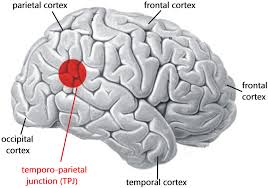Caffeine and the Brain: The Science of Staying Alert
- deniztiryakioglu15
- May 27, 2024
- 2 min read

When working on assignments late into the night and needing energy, one of the first things we consume is caffeine, which holds the position of the most consumed psychoactive stimulant in the world (Evans, 2023). We usually obtain caffeine from substances like coffee, tea, or cocoa. Have you ever wondered how this substance, so prevalent in our daily lives, affects our brain?
Caffeine works by blocking adenosine receptors (Alasmari, 2020). Normally, adenosine promotes relaxation and sleep by slowing down nerve cell activity along neural pathways. Therefore, by blocking the receptors in place of adenosine, caffeine makes the body more alert and awake. Additionally, research shows that caffeine also increases the release of other neurotransmitters like dopamine and norepinephrine (Brain, Marshall, et al., 2023).
Normal doses of caffeine (which generally range between 50 to 300 mg, although this can vary for everyone) can lead to increased alertness, energy, and ability to concentrate (Morales-Brown, 2023). Research also suggests that people who consume caffeine have a lower risk of developing type 2 diabetes, Parkinson’s disease, or heart failure (“9 Reasons Why (the Right Amount of) Coffee Is Good for You.”, 2024). However, exceeding the ideal daily amount can cause negative side effects like headaches, dizziness, fast heart rate and insomnia. It is also possible to experience withdrawal symptoms after abruptly stopping excessive daily caffeine use. These symptoms include drowsiness, irritability, nausea, and trouble concentrating (“Caffeine”). Therefore, finding the right balance in caffeine consumption is crucial. Experts also recommend limiting caffeine intake before bedtime to help us sleep more easily.
Understanding how caffeine exerts its effects on alertness and using it correctly can help us benefit from its advantages, allowing for better focus and improved academic performance. So, the next time you sip your coffee, you'll understand exactly what's going on inside your brain to give you that energising boost.
Bibliography
1. “9 Reasons Why (the Right Amount of) Coffee Is Good for You.” Johns Hopkins Medicine, 3 Jan. 2024, www.hopkinsmedicine.org/health/wellness-and-prevention/9-reasons-why-the-right-amount- of-coffee-is-good-for-you. Accessed 22 May 2024.
2. Alasmari, Fawaz. “Caffeine Induces Neurobehavioral Effects through Modulating Neurotransmitters.” Saudi Pharmaceutical Journal : SPJ : The Official Publication of the Saudi Pharmaceutical Society, U.S. National Library of Medicine, Apr. 2020, www.ncbi.nlm.nih.gov/pmc/articles/PMC7132598/. Accessed 22 May 2024.
3. Brain, Marshall, et al. “How Caffeine Works.” HowStuffWorks Science, HowStuffWorks, 18 Aug. 2023, science.howstuffworks.com/caffeine4.htm#:~:text=Caffeine%20wakes%20you%20up%20by, same%20receptors)%20speeds%20activity%20up. Accessed 22 May 2024.
4 “Caffeine.” MedlinePlus, U.S. National Library of Medicine, medlineplus.gov/caffeine.html. Accessed 22 May 2024.
5. Evans, Justin. “Caffeine.” StatPearls [Internet]., U.S. National Library of Medicine, 8 June 2023, www.ncbi.nlm.nih.gov/books/NBK519490/#:~:text=Indications-,Caffeine%20is%20a%20natu rally%20occurring%20central%20nervous%20system%20(CNS)%20stimulant,of%20tea%20 and%20cacao%20beans. Accessed 22 May 2024.
6. Morales-Brown, Peter. “Caffeine: Benefits, Risks, and Effects.” Medical News Today, MediLexicon International, 24 July 2023, www.medicalnewstoday.com/articles/285194. Accessed 22 May 2024.
Deniz Tiryakioğlu




Comments